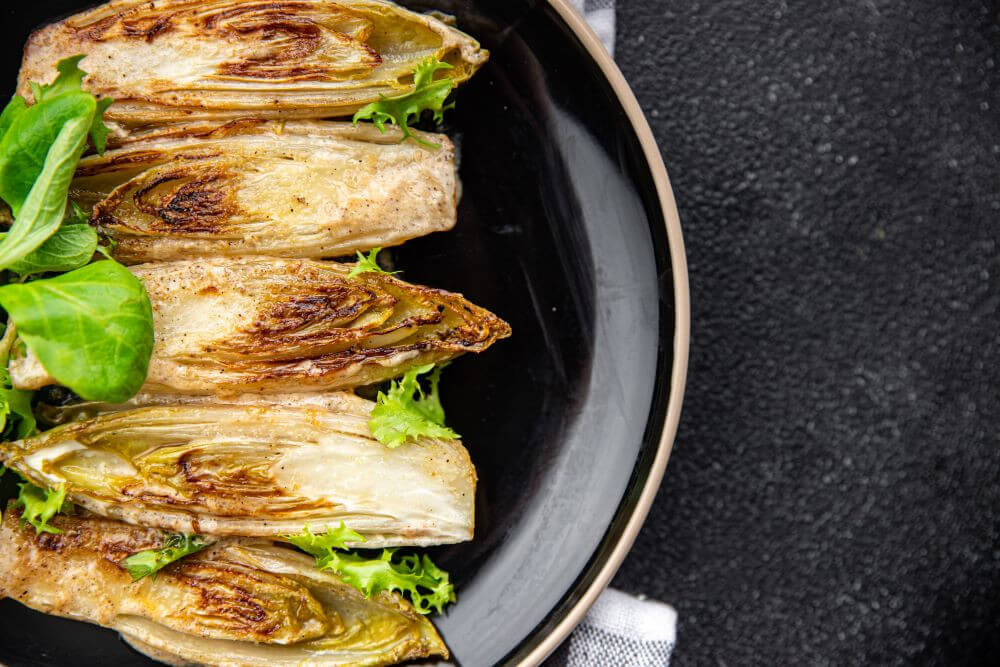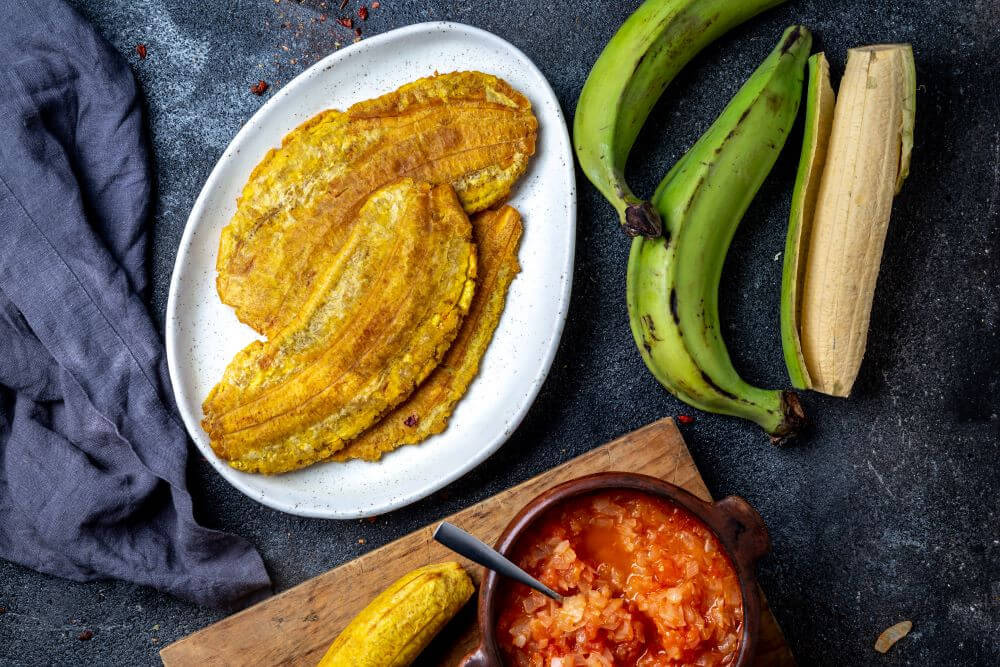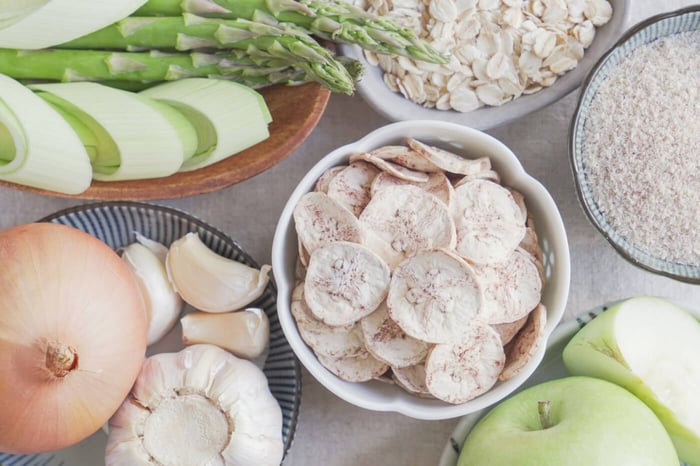In the realm of nutrition and digestive wellness, there's a fascinating group of carbohydrates known as resistant starches. These unique starches, found in certain plant-based foods, possess the incredible ability to resist digestion in the small intestine and instead ferment in the large intestine. As a result, they offer prebiotic properties that act as nourishment for the beneficial bacteria residing in your gut. This symbiotic relationship between resistant starches and your gut microbiome holds the key to enhancing your overall health and well-being.
What Exactly Are Resistant Starches?
Resistant starches are a form of carbohydrates that evade digestion in the small intestine, making their way into the large intestine where they undergo fermentation. This process fuels the growth and vitality of beneficial bacteria, promoting a healthy gut environment. Foods rich in resistant starches, such as onions, chicory, and green bananas, also serve as excellent sources of soluble dietary fiber, offering a range of health benefits.
A Shield Against Harmful Lectins
One of the remarkable benefits of resistant starches is their role in supporting gut defense against harmful lectins. The mucous layer that lines the innermost part of your gut contains fructooligosaccharides, which are the preferred feast for the beneficial bacteria that thrive on resistant starches. As these bacteria flourish, they stimulate the mucosal cells to produce more fructooligosaccharides. This, in turn, creates a protective barrier that acts like a moat, preventing lectins from crossing into your intestinal wall and causing harm. Thus, the more resistant starches you consume, the more resilient you become against the detrimental effects of lectins.
How Resistance Starches Help Blood Sugar Regulation
Interestingly, resistant starches behave differently in your gastrointestinal tract than other starchy foods that are quickly broken down into blood glucose and stored as fat. Resistant starches resist the enzymes responsible for starch breakdown, meaning they remain largely intact as they pass through the small intestine. Consequently, you don't absorb the calories from these starches in the form of sugar, resulting in stabilized blood sugar levels.
Furthermore, the fermentation of resistant starches by beneficial gut bacteria produces short-chain fatty acids(1). These fatty acids have a dual benefit – they enhance nutrient absorption and promote the growth of more beneficial bacteria in your gut. This prebiotic effect further supports digestion and provides an added defense against lectins, reducing the risk of weight gain triggered by lectin-induced cycles.
Resistance Starches Impact on Your Diet and Gut Microbiome
Including resistant starches in your diet can be a game-changer for your overall health. Not only do they support your gut microbiome by nourishing the beneficial bacteria, but they also aid in the absorption of essential nutrients(2), promoting a robust digestive system. As your gut defense strengthens, the negative effects of harmful lectins are mitigated, leading to a potential reduction in weight and improved well-being.
Incorporating Resistant Starches into Your Diet: A Delicious List of Foods
Now that you're aware of the incredible benefits of resistant starches, it's time to explore the diverse range of foods that can enrich your diet and boost your gut health. Including these delightful options into your meals not only adds flavor and variety but also enhances your overall well-being. Let's dive into the list of foods rich in resistant starches that you can readily incorporate:
1. Sweet Potatoes: These vibrant and nutritious root vegetables are a fantastic source of resistant starches. Enjoy them roasted, mashed, or as a tasty addition to salads and stews.
2. Green Bananas: Unripe green bananas are an excellent choice for introducing resistant starches to your diet. You can slice and sauté them, blend them into smoothies, or use them in banana-based recipes.
3. Onions: Besides adding depth of flavor to your dishes, onions provide a good dose of resistant starch. Savor them in various culinary creations, from soups and stir-fries to sauces and salads.
4. Chicory: This versatile leafy vegetable is not only packed with resistant starches but also offers a host of other health benefits. Use chicory in salads, sautés, or even as a coffee substitute.

5. Millet: Millet is a lesser-known grain that's gaining popularity for its nutritional value and pleasant taste. Cook it as a side dish, incorporate it into salads, or use it in place of rice for a unique twist.
6. Lentils: A staple in many cuisines, lentils are a rich source of resistant starches and provide an array of essential nutrients. Cook them into hearty soups, stews, or dals for a satisfying and nutritious meal.
7. Beans: Beans, such as black beans, kidney beans, and navy beans, offer a substantial amount of resistant starch. Incorporate them into salads, burritos, or casseroles for a wholesome and filling experience.
8. Plantains: Similar to green bananas, unripe plantains are an excellent source of resistant starches. Try them fried, boiled, or baked as a tasty side dish or snack.

9. Pearl Barley: This nutritious whole grain contains resistant starches and adds a pleasant chewy texture to soups, salads, and pilafs.
10. Chickpeas: These versatile legumes are not only delicious but also packed with resistant starches. Use them to create hummus, curries, or roasted chickpea snacks.
Remember to combine these resistant starch-rich foods with a balanced and diverse diet to enjoy the full spectrum of health benefits they offer. By incorporating these delectable options into your meals, you can support your gut microbiome, improve nutrient absorption, and fortify your body's defenses against harmful lectins. So, embrace the goodness of resistant starches and elevate your culinary experience while nourishing your overall well-being. Happy cooking and happy gut!
References:
- Portincasa P, Bonfrate L, Vacca M, De Angelis M, Farella I, Lanza E, Khalil M, Wang DQ, Sperandio M, Di Ciaula A. Gut Microbiota and Short ainCh Fatty Acids: Implications in Glucose Homeostasis. Int J Mol Sci. 2022 Jan 20;23(3):1105. doi: 10.3390/ijms23031105. PMID: 35163038; PMCID: PMC8835596.
- Kadyan S, Park G, Wang B, Singh P, Arjmandi B, Nagpal R. Resistant starches from dietary pulses modulate the gut metabolome in association with microbiome in a humanized murine model of ageing. Sci Rep. 2023 Jun 29;13(1):10566. doi: 10.1038/s41598-023-37036-w. PMID: 37386089; PMCID: PMC10310774.





